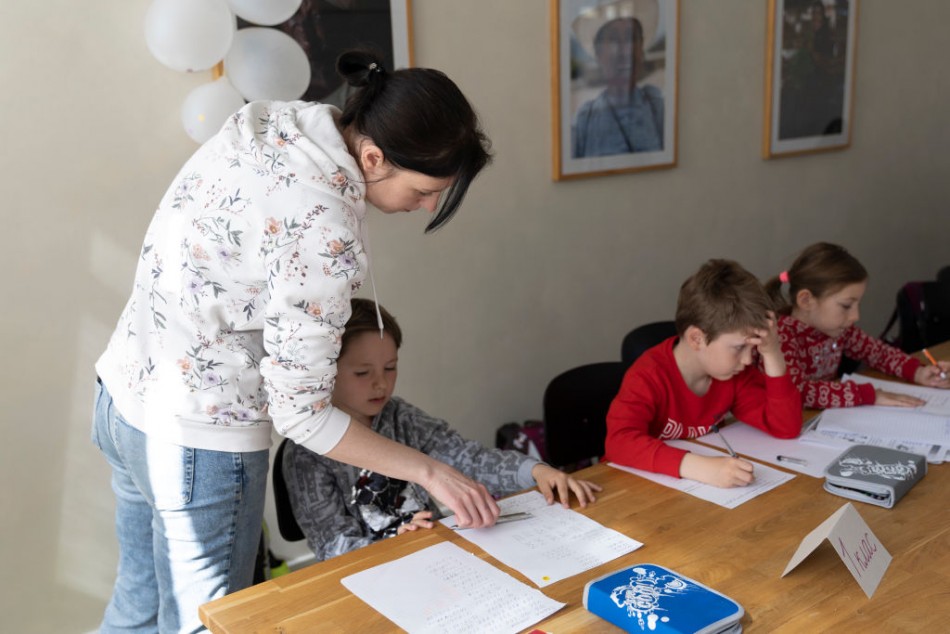Learning Disabilities in Kids: 4 Ways to Spot and What Parents Must Do

It's common for some children to struggle with learning how to read or write, but this doesn't immediately count as a learning disability. The signs of learning disabilities in kids may vary because this neurological condition affects brain processing.
According to the U.S. Centers for Disease Control and Prevention (CDC), learning disabilities entail a group of disorders like dyslexia for reading, dysgraphia for writing, and dyscalculia for math. The disorders may co-exist and draw out emotional or behavioral problems in kids, such as attention-deficit/hyperactivity disorder (ADHD), since they become frustrated about their slow progress despite trying very hard with their school work.
Read Also: Snoring in Kids: What Troubling Signs Parents Need to Take Seriously
Below are some signs that may help parents spot learning disabilities in kids:
If a child has dyslexia:
A child with dyslexia may struggle with reading comprehension and grammar so they could learn to talk quite late or are slow to recognize and learn new words. Children with dyslexia may also have difficulty verbally expressing themselves or organizing their thoughts into written words. They can't easily follow nursery rhymes and likely avoid activities that may require reading in school.
Some telltale signs of dyslexia include problems recognizing the words just by reading as the brain cannot process how the word is spelled. The child may also have problems breaking down words based on sounds. In school-age kids, the tendency to complete reading tasks longer than the norm could be a red flag.
Suppose a school-age child can't still grasp reading. In that case, it's best to talk to a pediatrician for a proper assessment, as undiagnosed dyslexia can turn into a reading difficulty when the child becomes an adult.
If a child has dysgraphia:
A child who struggles with dysgraphia may have penmanship that is hard to read, an awkward way of holding a pen or pencil, and inconsistent spaces when writing words or letters. The child may also exhibit poor spelling and may feel challenged to reproduce drawings, so he might often balk at doing this activity in school.
Dysgraphia, like dyslexia, can lead to grammar issues as the child becomes more used to writing run-on sentences or paragraphs that seem to start in the middle of the story. They could also have trouble using scissors or working out zippers, per ADDitude.
Many kids with dysgraphia improve with occupational therapy. A school psychologist may also work with the child for regular assessments as there is no cure for this disorder but only consistent guidance and training.
If a child has dyscalculia:
About seven percent of school kids have some form of math disorder, which may be evident in their inability to count or recognize numbers. They may also struggle with number sense in that they can't tell that 28 is higher than 16, for example.
Kids with dyscalculia may also struggle with telling time, understanding graphs, charts, fractions, or word problems in mathematics. Parents need to talk to the children's teacher to conduct a proper assessment and gain a recommendation for a specialist. As with dysgraphia, this learning disability requires no medication nor cure but consistent practice.
If a child has ADHD:
Children with ADHD will present inattentiveness, excessive talking, or fidgeting behaviors. They may also be easily distracted in class, show difficulty in following instructions, or often forget or lose their stuff.
Kids with ADHD have to be referred to a developmental behavior specialist, a psychologist, or a pediatric neurologist for a proper assessment, especially if they have mood disorders or appear to be on the spectrum. Managing this condition is personalized and will depend on the analysis of the specialist, per the Mayo Clinic.
Related Article: Student With Misophonia Files Lawsuit Against School for Failing to Ban Gum Chewing
© 2024 ParentHerald.com All rights reserved. Do not reproduce without permission.
